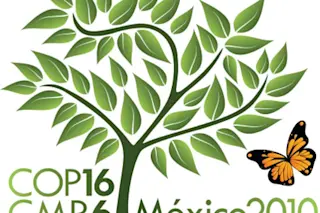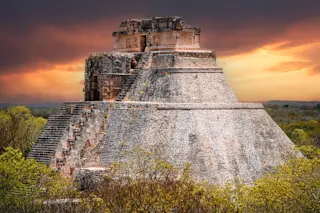When the Cancun Climate Summit began, we mentioned the modest goals most nations set going in (especially in the wake of 2009's messy Copenhagen meeting). Indeed, the United Nations climate meeting in Mexico didn't shoot for the stars in terms of emissions reductions, but the nations assembled at least agreed to a few limited proposals and set the stage for next year. The agreement is not a legally binding one, but it includes:
1. The package known as the Cancún Agreements gives the more than 190 countries participating in the conference another year to decide whether to extend the frayed Kyoto Protocol, the 1997 agreement that requires most wealthy nations to trim their emissions while providing assistance to developing countries to pursue a cleaner energy future. [The New York Times]
Kyoto's targets were for the year 2012. The question for the 2011 meeting in South Africa, then, will be whether ...














